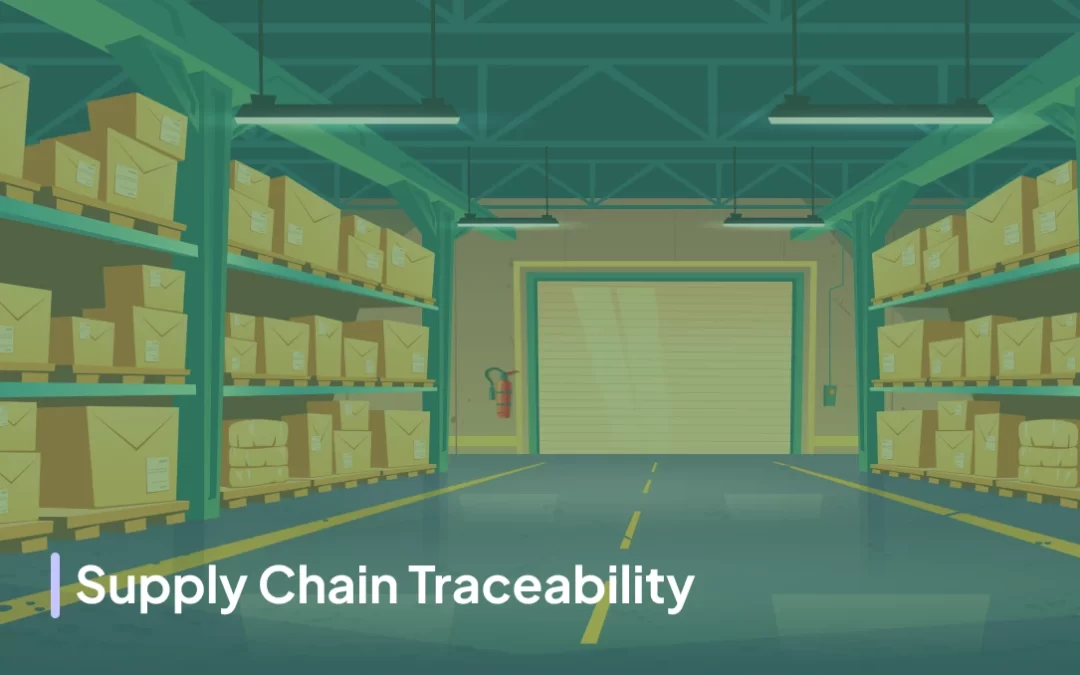In today’s interconnected world, supply chain traceability has become a vital component of operational excellence, especially for agricultural businesses. But what exactly is supply chain traceability, and why is it crucial for the agribusiness sector?
Understanding Supply Chain Traceability
Supply chain traceability refers to the ability to track and trace a product’s journey through the supply chain—from its origin to the final consumer. It involves capturing data at every stage of the product lifecycle, including production, processing, distribution, and retail. This transparency ensures that every stakeholder, including producers, processors, retailers, and consumers, has access to essential information about the product’s source, quality, and movement.
In agriculture, this could mean tracking a crop from the field where it was grown, through various stages of processing and transportation, to the shelf of a retail store or directly to the consumer. It requires integrating technology such as QR codes, blockchain, RFID, and IoT sensors to gather, store, and share data in real-time.
Importance of Traceability in Agri-Businesses
1. Enhancing Food Safety
Agriculture plays a pivotal role in feeding the population, and food safety is a top priority. Traceability systems can quickly identify the source of contamination during a foodborne illness outbreak, minimizing risks and enabling swift recalls. This protects consumers and reduces financial losses for businesses.
2. Building Consumer Trust
Modern consumers are increasingly demanding transparency. They want to know where their food comes from, how it is produced, and if it aligns with their values, such as organic farming or sustainability. Supply chain traceability provides this information, fostering trust and loyalty.
3. Compliance with Regulations
Governments worldwide, including India, are implementing stricter regulations for food safety and quality. For example, the Food Safety and Standards Authority of India (FSSAI) mandates traceability for certain food categories. Agri-businesses with robust traceability systems can ensure compliance, avoid penalties, and maintain their market position.
4. Reducing Waste and Improving Efficiency
Traceability can help identify bottlenecks and inefficiencies in the supply chain. By monitoring each stage, businesses can reduce waste, optimize resource utilization, and improve overall productivity. This is particularly crucial for perishable agricultural products.
5. Combating Counterfeiting and Adulteration
India’s agriculture sector often faces challenges such as counterfeit seeds, fertilizers, and adulterated products. Traceability solutions can authenticate product origins and protect farmers and consumers from fraudulent practices.
Insights from Indian Agri-Businesses
India’s agricultural sector, contributing nearly 20% to the GDP, has seen a growing adoption of traceability solutions. According to a 2023 report by the Indian Council of Agricultural Research (ICAR), agri-businesses leveraging digital traceability systems reported a 15% reduction in post-harvest losses and a 20% improvement in market access.
For instance, major players in the Indian agri-tech space, such as Ninjacart and WayCool, are integrating traceability into their operations. These companies use technology to ensure transparency, enhance supply chain efficiency, and meet global export standards.
Case Study: Traceability in Indian Spice Exports
The Indian spice industry, valued at over $4 billion, has embraced traceability to meet international standards. For example, turmeric and black pepper exporters have implemented blockchain technology to trace the journey of these spices from farms to international buyers. By leveraging such systems, exporters have ensured higher quality, better pricing for farmers, and increased trust among global consumers. This initiative highlights how technology-driven traceability can enhance the reputation of Indian agricultural products in international markets.
Conclusion
Supply chain traceability is no longer a luxury but a necessity for agri-businesses aiming to thrive in a competitive and regulated market. By adopting traceability solutions, businesses can ensure food safety, gain consumer trust, reduce waste, and comply with regulations, all while contributing to a more sustainable future.
For Indian agribusinesses, the integration of traceability systems represents a significant step toward modernization and global competitiveness. As technology continues to evolve, the potential for traceability to transform the agriculture sector is immense. By investing in these systems, agri-businesses can unlock new opportunities and ensure a brighter future for all stakeholders.

